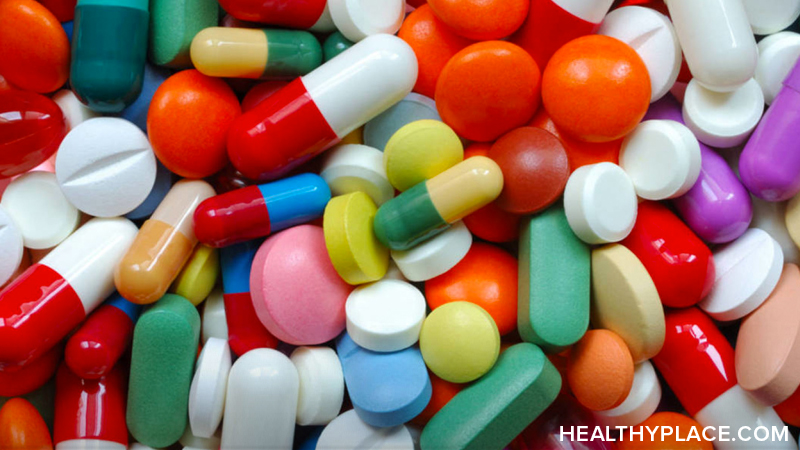Do Stimulants Work for Treatment-Resistant Depression?

Many people don’t know that stimulants can be used for treatment-resistant depression. Stimulant medication (such as methylphenidate) is primarily used to treat attention deficit hyperactivity disorder (ADHD), while other stimulant-like drugs are often prescribed to ease the effects of narcolepsy, obstructive sleep apnea, and other sleep disorders. However, stimulants have also been used to treat patients with major depressive disorder (MDD) – particularly those who do not respond to traditional antidepressants. So how do stimulants for treatment-resistant depression work, and are they safe?
How Stimulants for Treatment-Resistant Depression
Stimulants are often used for treatment-resistant depression, usually along with another oral antidepressant, such as an SSRI.
Stimulants and psychostimulants for treatment-resistant depression (particularly amphetamine and methylphenidate) have been used in addition to conventional antidepressants for decades, and with great success. In a study carried out on those with treatment-resistant depression, 38 out of 65 patients showed significant improvement in response to psychostimulants. Despite concerns in the medical field, none of the subjects in this study showed serious side-effects or developed drug dependency.
This doesn't mean that stimulants are always safe, or that they always work. These kinds of medications can have severe side-effects and dangerous interactions with other drugs, so they must always be taken under guidance from a medical professional.
Stimulants As Treatment of Treatment-Resistant Depression
The stimulants most commonly used for treatment-resistant depression include:
Lamictal/Lamotrigine
Lamotrigine (also known as the brand name Lamictal) is an anticonvulsant medication used to treat epilepsy. It can also be prescribed as a mood stabilizer in those with bipolar disorder as a replacement for Lithium, which has been relatively under-prescribed in recent years.
Studies have shown that the mood-stabilizing component of Lamotrigine is effective in treating treatment-resistant depression. The drug works by accelerating the onset of antidepressant action.
Ritalin
Ritalin is a trade name for methylphenidate. Some doctors prescribe Ritalin for treatment-resistant depression, but it is typically a stimulant used to treat attention deficit hyperactivity disorder (ADHD) and narcolepsy.
Although the adjunctive use of psychostimulants like Ritalin is still being investigated for the treatment of treatment-resistant depression, there is no clear evidence that methylphenidate is effective at easing the symptoms. Although some promising results were seen in case studies, controlled studies have not demonstrated significant improvement in patient outcomes. As such, most doctors do not recommend Ritalin as a first-line treatment for depression. You should never take methylphenidate medications without guidance from your doctor.
Adderall
Adderall can also be prescribed for treatment-resistant depression because it helps to alleviate lethargy. However, Adderall is not an antidepressant, and it should not be used as a replacement for conventional depression treatments. It also potentially interacts with many medications including monoamine oxidase inhibitors, blood thinners, alpha blockers, antacids, antihistamines, anticonvulsants and some pain killers.
Adderall can also be highly addictive. According to the National Institute of Health, when taken for some time, patients may develop a tolerance, necessitating increased doses to have the same desired effect. What's more, doctors warn that regular use of Adderall followed by suddenly stopping can trigger worse bouts of depression.
The Final Word on Stimulants for Treatment-Resistant Depression
Stimulants can be effective at treating depression, but they can also be dangerous when not taken correctly or taken over a long period of time.
Recently, the FDA issued a warning for anyone taking stimulants like Adderall, Ritalin or Lamactil. This comes after research indicated that children and adolescents who took stimulants might be at increased risk for cardiac events like stroke, heart attack and sudden death, especially if they had pre-existing cardiac problems.
This same research highlighted a risk of psychosis or mania in patients who took stimulants. As such, the risks and benefits of taking stimulants for the treatment of treatment-resistant depression should be weighed carefully by a doctor, and you should always follow your physician's instructions.
APA Reference
Smith, E.
(2022, January 4). Do Stimulants Work for Treatment-Resistant Depression?, HealthyPlace. Retrieved
on 2026, March 4 from https://www.healthyplace.com/depression/depression-treatment/do-stimulants-work-for-treatment-resistant-depression



